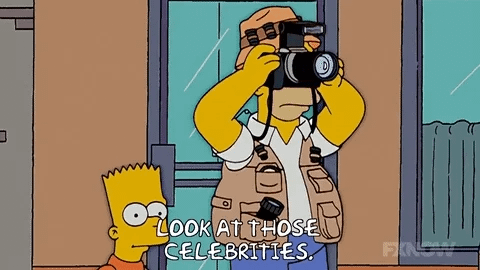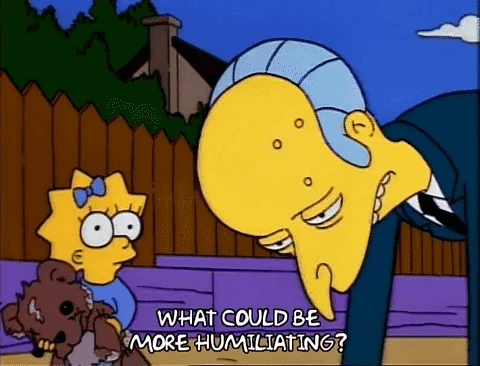I realise I am shopping myself for writing this newsletter on the same day of sending it, but life is chaos, and so am I.
The world woke up to the news of yet another untimely celebrity death this morning, with Liam Payne of One Direction fame passing away at just 31 years old following a pretty horrific accident in Buenos Aires.
What immediately got me about this story is that just days ago, I saw several videos taking the piss out of Payne. It’s no news to anyone that the singer has been going through a rough time, and having substance abuse problems in the limelight brings with it its own special brand of hell.
None of Payne’s story is new.
And that’s why it’s so tragic.
This is happening all the time. The court of public opinion loves nothing more than witnessing a public figure fall from grace. Fellow Geordie Sam Fender probably said it best in his song Poundshop Kardashians:
We love them we hate them
We want to see them fall from grace
We laugh at them disheveled
On the front page of The MailThen grab ourselves a pitchfork and go in for the kill
Together light vigils
Eulogize them on the Internet when they top themselves
When they couldn't take it no more
These prophetic verses so cleverly summarise the journey that many celebrities are on in the public eye. We’re all harping on about mental health awareness and #bekind - which came as a result of Caroline Flack’s passing in 2020 - but then we also love to laugh at their downfalls.
There are a few factors at play here. The first is the depersonalisation of celebrities. Once someone becomes famous at a certain level, society no longer sees them as individuals.
We’re witnessing this in real-time with the outrage directed toward singer Chappell Roan following the cancellation of a couple of festival gigs amidst a mental health crisis. Roan has been pretty open about her situation, even sharing her bipolar diagnosis, in the hope of receiving an inch of empathy from the public. But if Roan cancels festival appearances, the general consensus is that she’s letting her fans down. And yet, if we checked our phones tomorrow morning to see she was no longer with us, the narrative would immediately shift.
This is, I guess, what’s angering me today. I am not a One Direction fan, I don’t even think Liam Payne was a particularly good person, but I could also see he was struggling. The clip of him at Niall Horan’s recent concert is just one example of how the narrative has shifted - when I originally saw videos from this gig, the comments were mostly taking the piss out of Payne, remarking on how he is clearly under the influence, and how he is just generally a bit of a knob.
But now Payne has passed away, we have seen a massive transformation in how people are talking about him. People are shocked and saddened - quite the change from laughing at someone who is, quite clearly, suffering from a mental health crisis.
The second string of the narrative I wanted to explore is the concept of collective grief.
The world is now grieving for someone only a handful of people actually knew.
And this happens all of the time.
I remember crying in school at the news of Heath Ledger’s death. I was a huge fan, and losing a star so young felt so unfair. But I didn’t know him - I wasn’t really grieving for Heath Ledger, I was grieving for the idea I have of him in my head.
So, we now have a weird situation in which people who openly mocked Liam Payne are sharing tributes to the star, while he has a family, a partner, ex-partner and even a child who actually knew him, and are now having to grieve in the limelight.
Even as I was searching for that video of him at Niall’s concert, the algorithm suggested “Liam Payne fall video” - TikTok literally wants me to hunt down a video of his death. I have no idea if such video exists, I really hope it doesn’t. But even the idea that the app wants me to look is sick enough.
That’s humilitainment!
As a society, we love to witness the downfall of others. In fact, humilitainment - a portmanteau of humiliation and entertainment - has long been one of the most profitable forms of television. Think Big Brother, Biggest Loser and Love Island. All of these shows are designed around the humiliation of their participants, with the promise of fame and fortune as a result.
In psychological terms, this is an extreme form of schadenfreude - the concept of feeling pleasure at another’s misfortune. In Payne’s case, and that of other celebrities, it’s not only that we, as a society, enjoy seeing them humiliated, but also that they are everything society tells us we should be - rich, famous, powerful, and influential.
These are all goals of the world we live in, so when we see someone who has, on paper, achieved such goals and isn’t doing particularly well as a result, we are bitter. There’s a reason why celebrities have shorter lifespans than the average person.
Liam Payne isn’t the first celebrity to die amidst a mental health crisis, and he won’t be the last. But I have to say, it’s wildly interesting to me to see people go from mocking to grieving in the space of just a few days - while we also continue to berate other stars for not living up to our impossibly high expectations.
I’m interested in what people think about this - I personally don’t enjoy the mocking of anyone, but equally, I don’t partake in eulogising people as faultless, one-dimensional individuals. Humans are complex; even the ones we do know die and leave behind very tricky terrain for us to navigate.
Let me know what you think in the comments.
Further reading
I wrote a similar piece in the wake of Netflix’s Baby Reindeer and explored the court of public opinion concept a little more over there, so feel free to give that a read.
It was my birthday on Tuesday, and by sheer coincidence, one of my all-time favorite artists, Ben Howard, was playing in Newcastle. This was a ten-year anniversary tour celebrating his 2014 release I Forget Where We Were - which we also saw live (in Edinburgh, I believe?). Old Pine was our first dance. So, you get the idea -I love Ben Howard, and it was great to see him live once again.
Other things I’ve also enjoyed this week:
📚Boulder by Eve Balthasar Sardà - This novella from the Catalan poet was beautifully written.
See you next week,
Ellen x
🎧I’m on Spotify!
If you like the audio version of this newsletter, you can listen to them all over on Spotify. Here’s last week’s:
💌 About this email
I’m Ellen, and I write about mental health for the chronically online. I am a freelance copywriter, strategist and web designer, and I work from home with my husband, Craig, at Content By The Sea. We have two rescue greyhounds, Potter and Harmony, and a toddler.
I started this newsletter in March 2020 and have sent over 180 emails; currently, I have over 1,200 subscribers. I write about a wide variety of topics, including diet culture, my love of running, jealousy, my life falling apart, mam guilt, and this dystopian world we all live in.
💛 How you can support me
If you like reading my weekly emails, you can give me a kickback in one or more of the following ways:
📨 Share this post
📬 Subscribe for free (if you haven’t already!)
💬 Leave a comment on this newsletter
💰Sign up to be a paid supporter of the newsletter for just £4 a month or £40 a year.
The current perks of being a paid subscriber are receiving one extra Touching Grass email each month with all of my top films, shows, podcasts and books. Most importantly, you are supporting me in continuing to write this newsletter week after week.












It's horrendous. I think everything you've described (especially the hypocrisy of people saying BeKind in one breath and spouting cruelty the next) is symptomatic of a generally miserable society. There are no good or bad people - only joyful or miserable people (as Sadhguru put it).
Look at all the wellness advice you see everywhere nowadays. 99% of it relates to self-care of some kind or another; and yet, the one unifying factor behind all the world's major moral philosophies (all those that have stood the test of time) advises the exact opposite - that in order to be happy, we have to transcend the self and act for others (in other words, to put love and compassion at the heart of every decision we make that affects other people). Despite all the differences between the world's myriad axiological philosophies / belief systems, this is the one thing common to them all.
But somehow it's almost completely absent from modern conversations about how to look after yourself. No wonder people are miserable (and mean) when they're told by society to hyper-focus on themselves.
I think this problem is only going to get worse in the years to come, as more and more aspects of our lives play out digitally.
You've completely hit the nail on the head here. I too noted the piss-taking posts with disappointment because it was pretty clear for some time that things were not ok with Liam Payne. I remember saying to a friend after he had all that work done on his face that he clearly wasn't a well guy and it was so sad how unsupported he seemed.
Liam was subjected to mockery and disrespect on a global scale for some time, but now of course, he's the subject of mass grief and posthumous admiration.
It's a total head fuck and it happens time and time again. Thinking of the people who knew and loved him, especially his young son. A tragedy.